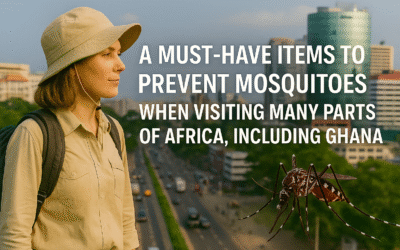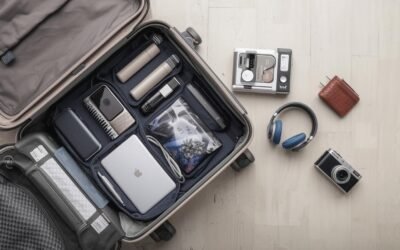Introduction: Health Awareness, Your Passport to a Safe African Adventure
Africa is one of the most beautiful and diverse continents in the world. From the golden savannas of Kenya to the vibrant markets of Ghana and the historical pyramids of Egypt, every region offers something unique. However, for first-time travelers, understanding health precautions is as important as packing your passport.
This guide, written with real-world travel experience across multiple African countries, combines expert advice, local insights, and up-to-date health recommendations to help you enjoy your trip safely and confidently.
1. Schedule a Travel Health Consultation Early
Before booking your flight, schedule a visit to a travel health clinic or your healthcare provider ideally, 4–6 weeks before departure. Many vaccinations and preventive medications need time to take effect.
Essential Vaccinations for Africa
Depending on the country or region, you may need:
- Yellow Fever Vaccine: Mandatory for entry into many African countries.
- Typhoid and Hepatitis A: Recommended for all travelers due to food and water risks.
- Tetanus, Polio, and Measles Boosters: Ensure your routine immunizations are current.
- Malaria Prevention Medication: Consult your doctor for the right prophylaxis.
Expert Tip: Always carry your International Certificate of Vaccination (Yellow Card) when traveling within Africa—it’s required at many borders and airports.
2. Protect Yourself from Mosquitoes and Vector-Borne Diseases
Malaria, dengue, and yellow fever are transmitted through mosquito bites in many African regions. Preventing bites is your strongest protection.
How to Stay Safe:
- Use DEET-based insect repellents or picaridin.
- Sleep under insecticide-treated bed nets.
- Wear long-sleeved shirts and trousers at dawn and dusk.
- Stay in air-conditioned or screened accommodations when possible.
Trustworthy Advice: Avoid relying on “natural” repellents like citronella oils—they provide minimal protection in high-risk areas.
3. Drink Smart: Stay Hydrated, But Choose Water Wisely
Dehydration and contaminated water are two major health risks for newcomers. African heat can be intense, and waterborne diseases like cholera or giardia are preventable with care.
Safe Drinking Habits:
- Stick to sealed bottled water or purified water only.
- Avoid ice cubes unless you’re sure they were made from treated water.
- Use bottled or boiled water to brush your teeth.
- Carry water purification tablets or a portable filter if traveling off-grid.
4. Eat Local, Safely and Sensibly
African cuisine is rich and diverse from Ghana’s jollof rice to South Africa’s braai and Ethiopia’s injera. Enjoying local food is part of the adventure, but do so wisely.
Food Safety Tips:
- Eat freshly cooked, steaming-hot meals.
- Avoid raw salads, unpasteurized dairy, and street food unless it’s cooked before your eyes.
- Wash fruits yourself using safe water.
- Carry antidiarrheal medication (like loperamide) just in case.
Expert Experience: Travelers often underestimate how different local bacteria are. Even healthy-looking foods can cause “traveler’s tummy,” so stay cautious without missing the culinary experience.
5. Prioritize Sun Protection
The African sun can be unforgiving, especially near the equator. Sunburn, dehydration, and heatstroke are common among first-time visitors.
Stay Cool and Protected:
- Use broad-spectrum SPF 30+ sunscreen.
- Wear wide-brimmed hats and UV-protection sunglasses.
- Reapply sunscreen every 2–3 hours.
- Take frequent shade breaks and drink plenty of fluids.
6. Know How to Handle Medical Emergencies
While healthcare infrastructure in Africa varies, many cities have excellent hospitals and clinics. However, remote areas may have limited services.
Preparation Checklist:
- Purchase comprehensive travel insurance that covers medical evacuation.
- Save emergency numbers for local hospitals and embassies.
- Carry a basic first aid kit with painkillers, antiseptics, and bandages when you arrive.
- Register with your embassy or consulate for safety updates.
Authoritative Insight: In case of serious illness, the nearest private clinic or UN-certified medical center often provides the best care and faster attention than public facilities.
7. Respect Local Health and Hygiene Practices
Health and hygiene habits differ from country to country. Being respectful and observant will not only keep you safe but also help you integrate smoothly into local communities.
- Wash your hands often carry alcohol-based sanitizer.
- Follow COVID-19 or other public health guidelines if still in place.
- Avoid swimming in stagnant freshwater to prevent schistosomiasis (common in parts of Africa).
8. Manage Jet Lag and Travel Fatigue
Long flights and time zone changes can leave your immune system vulnerable. Adjust gradually and listen to your body.
Expert Wellness Tips:
- Rest well before and after your flight.
- Avoid excessive alcohol or caffeine.
- Eat light, balanced meals.
- Stay hydrated and get sunlight exposure to reset your body clock.
Conclusion: Healthy Traveler, Happy Journey
Traveling to Africa for the first time can be a life-changing experience full of color, rhythm, nature, and human warmth. By following these health tips grounded in real experience and professional advice, you’ll not only protect yourself but also respect the local environment and people you meet.
Whether you’re exploring the wildlife of Kenya, the coastlines of Ghana, or the mountains of Morocco, remember: good health is the foundation of every great journey.
Recommended Reading:
A Must-Have Items to Prevent Mosquitoes When Visiting Many Parts of Africa, Including Ghana











0 Comments